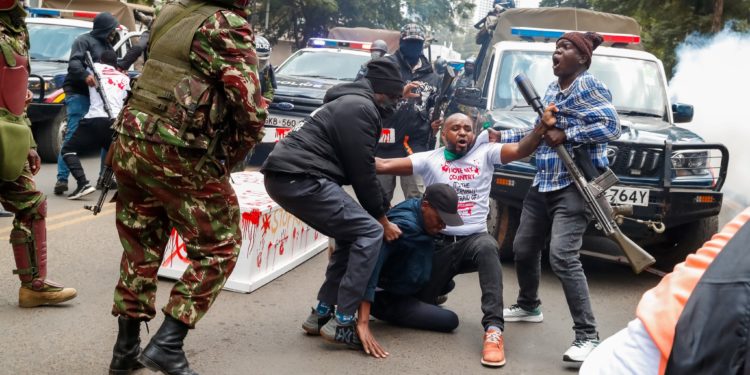Renowned Kenyan activist and photojournalist Boniface Mwangi has disclosed a harrowing personal struggle, revealing that he contemplated suicide earlier this August due to the profound impact of state-sanctioned violence in Kenya.
Mwangi’s confession comes at a time when he has been vocal about the oppressive actions of President William Ruto’s regime, which he accuses of perpetrating severe brutality against civilians and suppressing dissent.
In a Facebook post dated September 16, 2024, Mwangi detailed his emotional and mental health crisis that peaked on August 3, 2024. Faced with overwhelming pain and witnessing the state’s violent crackdown on peaceful protests, Mwangi admitted he had prepared for his final farewell. He signed his will and contacted friends and family, contemplating ending his life due to the compounded grief and trauma.
Mwangi described his state as one of utter despair, where he felt unable to endure the escalating violence directed at innocent Kenyans. He criticized the Kenyan government for its response to recent protests, accusing President Ruto of overseeing a regime that prioritizes the suppression of dissent over the protection of human life. “There was simply too much pain, grief, and trauma in my life that I couldn’t bear it any longer,” Mwangi wrote, highlighting the severity of his distress.
Despite his personal turmoil, Mwangi expressed gratitude for the support he received from his family and friends, which prompted him to seek professional help and take a break to focus on his mental well-being. This support, he said, played a crucial role in helping him regain his resolve and continue his activism. “They threw a ring of love and empathy around me that made me reconsider,” he noted.
Mwangi’s post provides a stark critique of the Ruto administration, accusing it of deploying excessive force against protesters and engaging in widespread abuses. He claims that the government has been involved in brutal acts, including abductions and killings of citizens expressing dissent. He referenced specific incidents, including the deployment of military forces and the alleged denial of police abductions, as evidence of the regime’s repressive tactics. “Ruto called us ‘treasonous’ and prioritized his concern about the alleged destruction of property over the lives of the citizens who were murdered,” Mwangi asserted.
The activist also accused opposition leader Raila Odinga of betrayal, suggesting that Odinga’s actions have compromised the protest movement’s integrity and objectives. Mwangi lamented that Odinga, once a prominent figure in the push for reform, has aligned with the regime, further complicating the political landscape.
Mwangi’s critique extends beyond political figures to include the broader issues of corruption and governance in Kenya. He argued that the current administration, under Ruto, has failed to address fundamental issues such as unemployment and corruption, continuing to exacerbate the country’s challenges. He also criticized the government’s attempts to discredit and undermine the protest movement through smear campaigns and harassment.

















